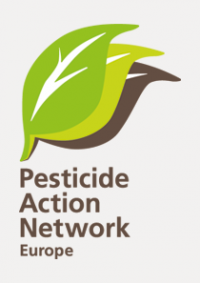Europe is facing a catastrophic collapse of biodiversity, with arthropod populations plummeting at an alarming rate. In some regions, insect biomass has declined by an alarming 75% over approximately 25 years. The scientific evidence is clear: habitat loss, industrial agriculture, and rampant pesticide use are the primary drivers of this decline.
The EU Pesticide Regulation states that pesticide products should have no unacceptable effects on the environment and non-target species, taking into account their impact on biodiversity and ecosystems. In practice, however, pesticides that are highly toxic to insects and other bugs, and negatively impact biodiversity continue to be systematically approved in the European Union. This is possible due to an outdated and biased “Guidance Document”, which details how the impact of pesticides on 'non-target' arthropods should be assessed in the EU. Essentially, it allows for the killing of arthropods with almost no limits. Adopted in 2002 and never revised since, it was heavily influenced by industry representatives. Hence, the tests required for assessing the impact of pesticides on arthropods are very limited and insensitive, allowing the killing of as much as 50% of the population with the spraying of a single pesticide. Unscientific concepts such as "recovery" provide exceptions even for 100% mortality of test arthropods, based on the reasoning that ‘they will come back’. In agriculture, the reality is that arthropods are exposed to cocktails of pesticide substances and other chemical stressors; this is not taken into account in the assessment. Hence, hardly any 'arthropod' life can survive with this guideline and they have little chance of 'coming back'.
This flawed document has been instrumental in the dramatic collapse of arthropods we are currently witnessing in Europe. For many years it has been criticised by both scientists, as well as by EU Member States, without undergoing any revision. After years of delay, the European Commission has finally granted the European Food Safety Authority (EFSA) the green light to revise the Guidance Document in June 2024. However, undisclosed documents obtained by PAN Europe, show that EFSA and its partner, Wageningen University (WUR), have no intention of increasing the level of protection of insects or of biodiversity as a whole. New and even worse concepts are introduced that will - if they have their way - lead to an equally ineffective or even worse new guideline that allows to finish off the life that still manages to survive in agricultural fields and their surroundings. EFSA and WUR create a fantasy world that has little to do with reality. Their work on non-target arthropods is the opposite of what they claim it to be—transparent, scientific, and independent, while they actively undermine current EU rules to protect the environment. EFSA’s work on non-target arthropods should be put to a halt and a new panel of completely independent scientists and entomologists should be appointed to start developing a new guideline from scratch.
